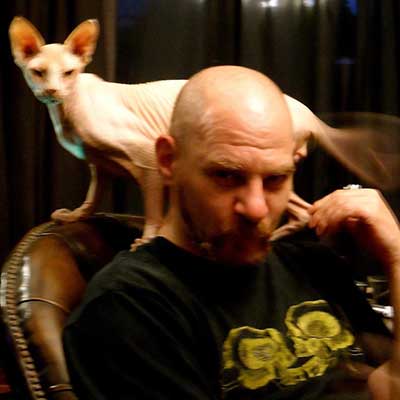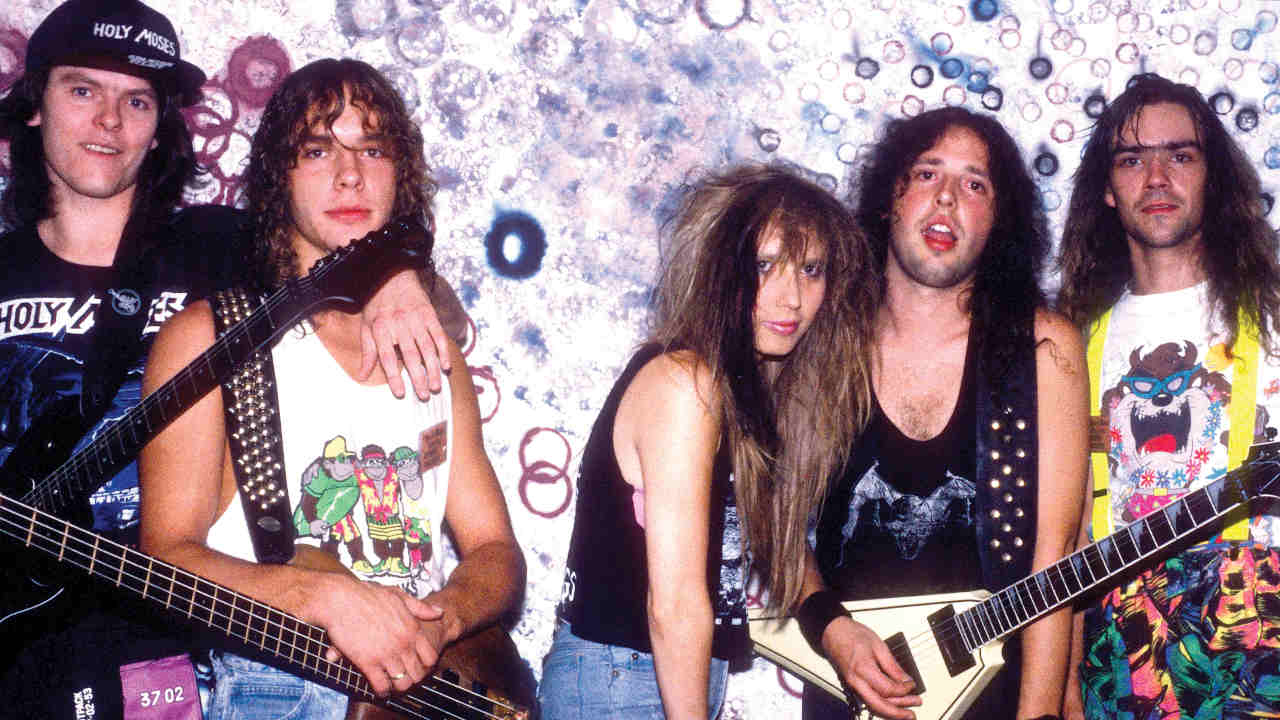Talking to Athelstan from Vikings about spirituality and heavy metal
In conversation with the former monk
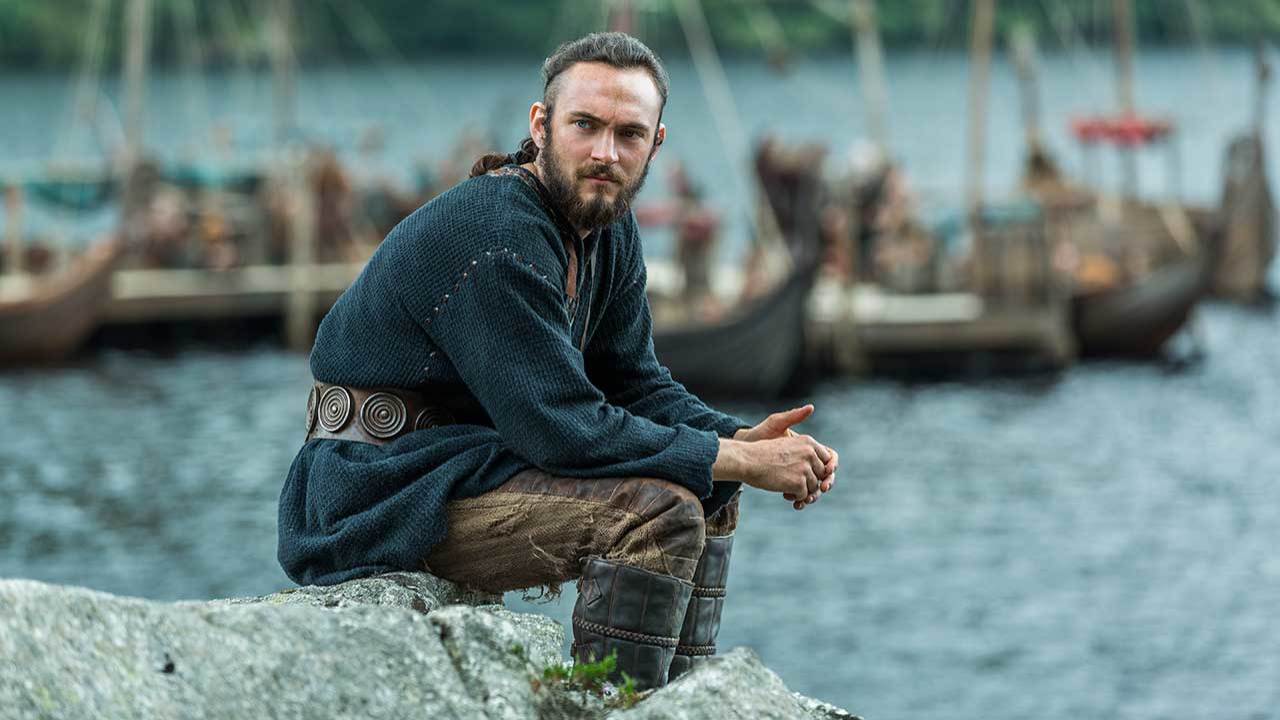
Select the newsletters you’d like to receive. Then, add your email to sign up.
You are now subscribed
Your newsletter sign-up was successful
Want to add more newsletters?

Every Friday
Louder
Louder’s weekly newsletter is jam-packed with the team’s personal highlights from the last seven days, including features, breaking news, reviews and tons of juicy exclusives from the world of alternative music.

Every Friday
Classic Rock
The Classic Rock newsletter is an essential read for the discerning rock fan. Every week we bring you the news, reviews and the very best features and interviews from our extensive archive. Written by rock fans for rock fans.

Every Friday
Metal Hammer
For the last four decades Metal Hammer has been the world’s greatest metal magazine. Created by metalheads for metalheads, ‘Hammer takes you behind the scenes, closer to the action, and nearer to the bands that you love the most.

Every Friday
Prog
The Prog newsletter brings you the very best of Prog Magazine and our website, every Friday. We'll deliver you the very latest news from the Prog universe, informative features and archive material from Prog’s impressive vault.
A TV series based around an historical Viking king and featuring copious battles, bloodshed, pillaging of monasteries, political subterfuge and a blood eagle to boot was never going to be a hard sell to the metal community. But over the course of three immersive and thrilling seasons, Vikings has become something more resonant, the presence of pagan spirituality interwoven into the plot, the use of Wardruna for much of the soundtrack and beautifully shot landscapes bringing a mystic take to historical drama that we haven’t seen since the Robin Of Sherwood TV series mesmerised audiences in the ‘80s.
So when we’re offered the chance to talk to George Blagden, aka Athelstan – a British monk captured by the series’ lead character, Ragnar Lothbrok, and whose journey back and forth between Christian and Pagan beliefs forms a key strand in the series – we went for it like we’d just wolfed down a load of berserker leaves. Below we talk to George about Athelstan’s odyssey, his relationship with Lothbrok, what Wardruna brought to the series, why a Viking doesn’t stand out on the streets of Dublin and more…
SPOILER ALERT – IF YOU HAVEN’T SEEN SEASON THREE OF VIKINGS, PROBABLY BEST TO SCROLL DOWN PAST THE NEXT PIC
Athelstan is no more, but where season three ended, it’s set up for you to still play a big part.
“Yeah, well, interestingly when I left the show, I tuned in to season three to watch from a personal interest, and when it gets to episode six I carried on as a fan. I was quite amazed at how much Athelstan is still so present. I thought he’d die and that was it. But he very much still feels like a present character in the show right up until the end of season three, and I wasn’t aware how much it would have an effect on Ragnar [Lothbrok, Vikings’ lead character]. Obviously when you leave shows like this mid-season, you don’t keep getting sent the script, so I didn’t have a clue what the story was, and I was really watching it like a fan, thinking ‛Oh my god, what’s going to happen next week?’ So I was quite surprised by that and I can’t really say anything about season four because I don’t know anything about season four, but I’d be surprised if that didn’t continue, how much it effects Ragnar.”
It was a ‛Noooo!’ moment when Floki killed Athelstan. At the end of season three Ragnar knows who killed him, so it seems like the repercussions are going to be a bit of a theme for season four.
“I think so, yeah. They’ve just set off shooting 16 episodes this year, and I think they’ve got space to draw out a lot of the storylines next year. Honestly, I’m just speculating like a fan. But I would say if I was Michael [Hirst, Vikings’ creator] I’d be drawing out that storyline and try to create as much tension between Ragnar and Floki as possible.”
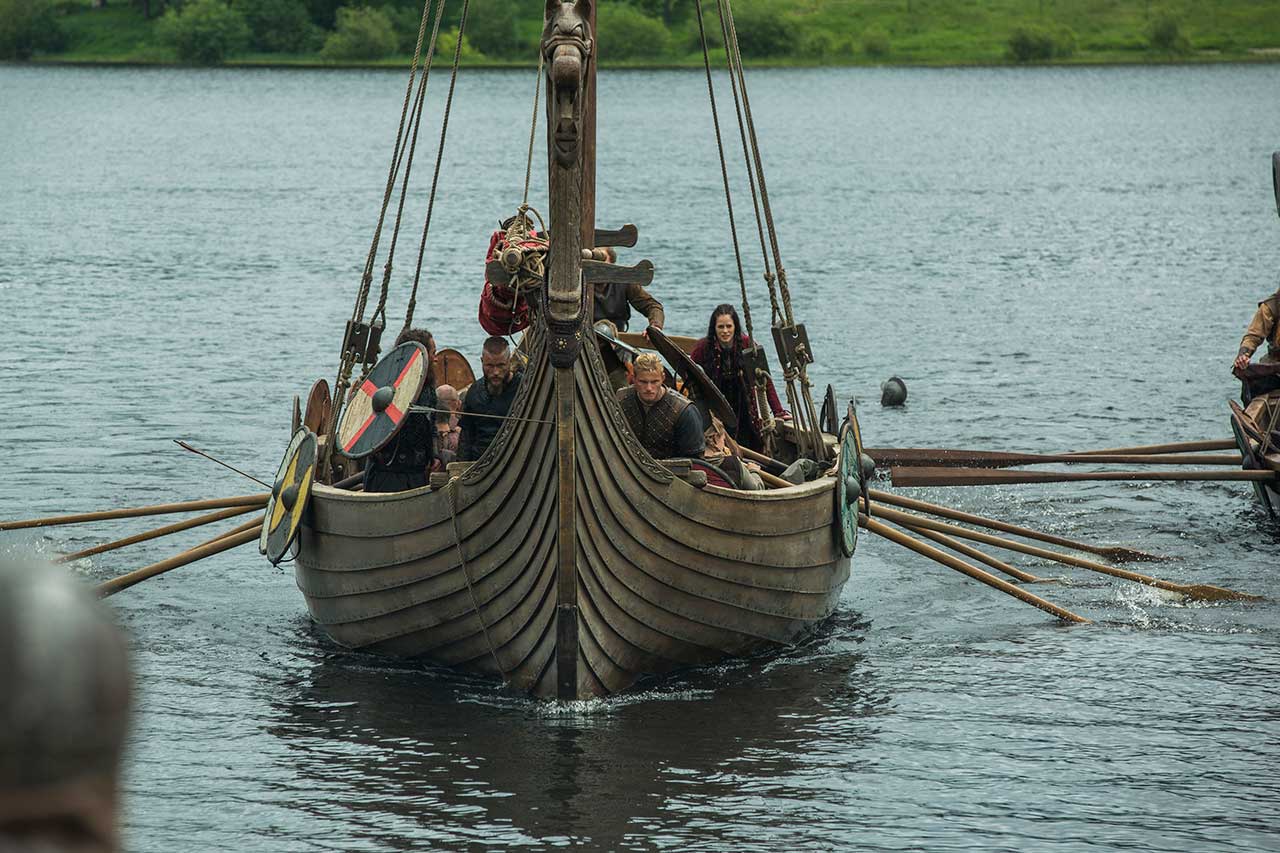
**Athelstan also has a very special role. He’s the go-between between the Pagan and Christian cultures. Also, you had one of the most interesting character arcs, between Christianity and Paganism, and your arc was wider than pretty much any other character in the series.
**“Yeah, I think so. Athelstan wasn’t actually meant to survive past season one, but we discovered that he was this great plot device, like you say, this go-between, and a way to see into the world of the Vikings, so that meant that he had to carry on and if he was going to carry on, he had to grow, and it’s such a gift, starting out as a young, fresh actor, to be given a role where you have that much scope to play with. I get sent a lot of posts on Twitter, actually, of people who took photos of Athelstan in episode two or three of season one and then where he ends up, and how different he looks. Not only did Athelstan change, but you look at yourself and you go, ‘Oh my god, yeah!’. It’s an amazing character that Michael wrote and it’s just a gift.”
**And incorporating all those shifts into one coherent character over time is a challenge. He’s on a journey of discovery, and there’s a lot of questioning of his spirituality as well.
**“Yeah, it was great fun to play. It was a journey for me. I knew little to nothing about Viking culture and especially my Viking religion and spirituality when I started the show. I didn’t actually do a lot of research purposely before season one – the director advised me it would be better to learn along the way from the other characters, and I think it was a smart move. A lot of the stuff Athelstan learned I was also learning and it made it a lot more organic, that whole kind of conversion that he undergoes. It’s just the great thing about doing historical drama, it’s like going back to school but having an amazing time while doing it, and doing the best job in the world!”
Sign up below to get the latest from Metal Hammer, plus exclusive special offers, direct to your inbox!
*Vikings* seems to put spirituality into the foreground a lot more than other historical dramas, or series such as Game Of Thrones.
“When we set off doing the show in season one, we talked about the importance of spirituality in the show and if you talk to Michael about it, how he explains it is that Game Of Thrones is fantasy, the spiritual elements on other shows is sometimes based in fantasy worlds, and he says that how our show demonstrates spirituality is just through truth; that is exactly what they believed in at that time, and it was a huge part of their lives. Every choice that they made was somewhat governed by their beliefs in different gods, and what a particular god was feeling like that month. It was a huge part of the show, so we needed to incorporate it in a way that we weren’t going to misrepresent it in any way and we were going to do it authentically and with respect, but we really had to include a lot of those elements for it to work, because that’s the people that they were.”
In the heavy metal world it has a particular resonance, not least because of the involvement of Wardruna. What was your impression of them?
“To be honest, I didn’t know Wardruna were part of the show at all until they turned up on set in the later episodes of season one. When you’re filming things, obviously the soundtrack and the music often is done a lot later in the process, but we were very lucky to have them come on set in season one and two, and they were doing stuff live on set with the instruments, and we actually shot some beach scenes where they were playing instruments on the beach. That’s incredible, because as an actor you’re filming stuff on set and it’s all silent, but you’ve got planes going over or if you’re in a city, buses going past, but to have a musical element on set with you, even playing while you’re acting, it’s incredible that they were willing to do that. So it helps to inform everything that you’re doing, and you’re not just acting to the wind when you’ve got the support of amazing musicians like them. It’s so atmospheric. Their music puts you in a very particular place, and it works so well with the show. You’re watching it and you just think of maybe other musical choices that you could have made for a historical drama like this and you kind of imagine what they would sound like in your head when you’re watching the episode and they just wouldn’t compare. They just wouldn’t live up to the atmosphere that’s created. It ties in so beautifully.”
**There are a lot of people from the metal scene who are also extras.
**“To be perfectly honest, you would never have known, ha ha! I didn’t know until you told me just then. In talking to the background artists on Vikings, they are just the gentlest, Irish guys and women, and I would never have thought that they were metal supporters or artists. They obviously look like it, they’ve got beards and long hair, but I guess I’m surprised in some ways and not surprised in others now you say that. To me it’s amazing, we had all of our haircuts done for season one and you go out in Dublin and you just don’t look out of place, even though you’re trying to recreate how people looked over a thousand years ago. I found that amazing.”
**Athelstan and Ragnar have such a strong bond. Was that something you had to forge offscreen too?
**“It’s interesting because Travis [Fimmel, who plays Ragnar] is an interesting character offscreen. He’s a very private person and if you were to see me and him socially or relaxing on set you wouldn’t immediately say we were close, but I think that there’s a lot of unspoken stuff that goes on when you’re working on a film or television set, and sometimes it’s easy to get close to people through your work, and the bond between us just naturally grew whilst we were filming. A huge part of it is to do with the writing. It’s very clever what Michael did in making Athelstan, by the end of season one, the only person he can trust and is the person you’d least expect to be the person closest to him when he starts off in season one. It’s a great relationship, I love it. It’s amazing when it goes from that scene in the chapel in Lindisfarne in episode two, by the end of the season how they’ve grown, and it’s rare to have that ambiguous relationship.”
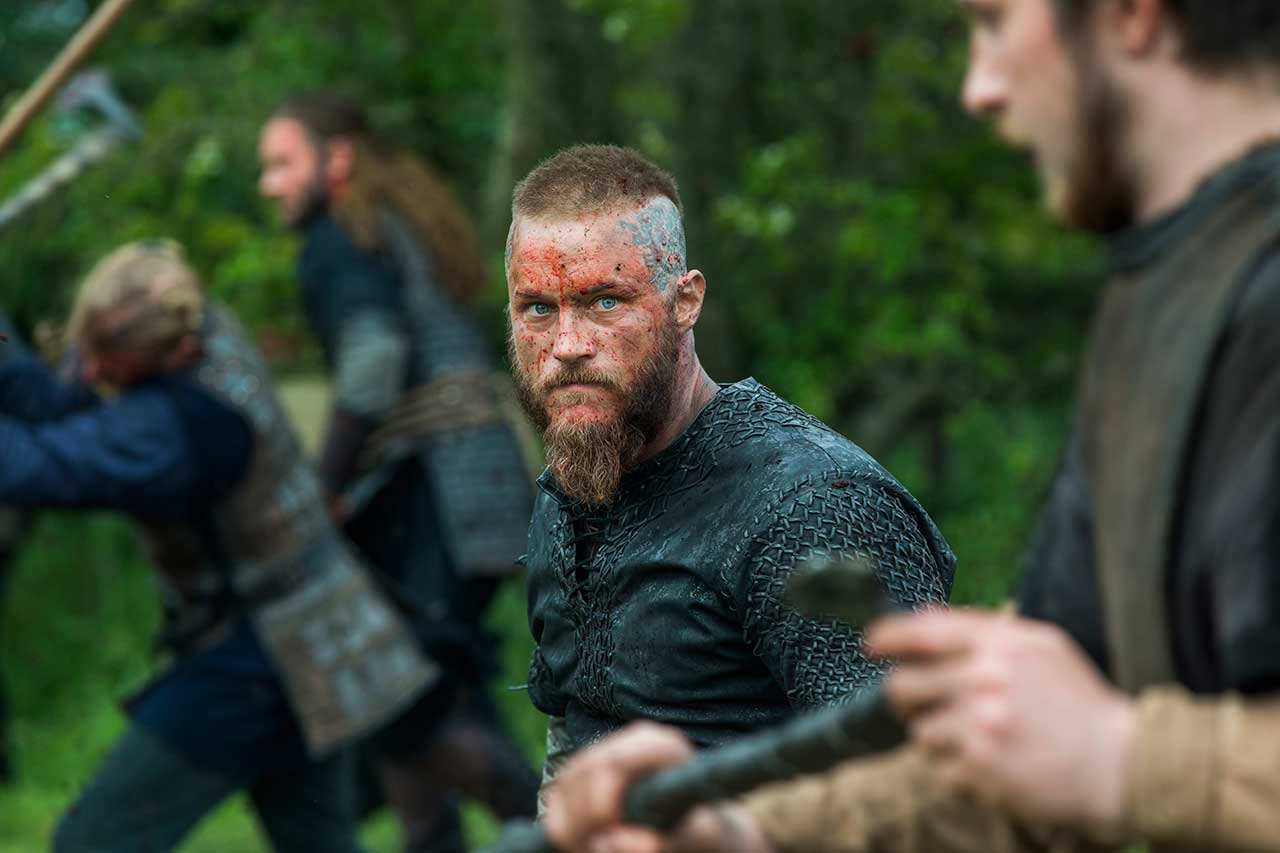
MORE SPOILERS – SERIOUSLY GO WATCH THE REST OF SEASON THREE
**Even by the end of season three you’re not entirely sure of the nature of it.
**“Absolutely. We end season one with him wanting to sacrifice Athelstan in Uppsala. Through season two it’s kept ambiguous and by the end of season three, it’s that classic thing where I watched that scene that Travis did where he’s burying Athelstan, and I didn’t see it, I wasn’t there on the day, and I was sat just mouth open. I was blown away by it because you suddenly realise that that’s what the relationship is, that you don’t realise what you have until it’s gone, and that’s what’s going to propel Ragnar through season four, that he’s very much alone.”
I think that understanding that relationship to Athelstan, why he’s so drawn to a Christian, is part of the key to unlocking Ragnar’s character.
“I think so. In being in the series, I saw the most change in Ragnar, where he progressed most, where he was the most progressive in his thinking and his choices, when he was interacting with Athelstan. Maybe that’s because I’m biased, ha! But a lot of his progression of moving his race of people forward came from this understanding of the world outside of Scandinavia from Athelstan, and I think when he goes, from Floki’s point of view it’s like Athelstan has brainwashed Ragnar, and you get that sense when Ragnar puts the cross around his neck when Athelstan’s gone – he’s almost like being fully converted. He’s not, we still leave it enigmatic at the end of season three, but that faith in not Christianity but in Athelstan is so interesting and so unique.”
Vikings: The Complete Third Season is out on Blu-Ray and DVD now. Get your copy here.
Having freelanced regularly for the Melody Maker and Kerrang!, and edited the extreme metal monthly, Terrorizer, for seven years, Jonathan is now the overseer of all the album and live reviews in Metal Hammer. Bemoans his obsolete superpower of being invisible to Routemaster bus conductors, finds men without sideburns slightly circumspect, and thinks songs that aren’t about Satan, swords or witches are a bit silly.
